|
Atterbury-Bakalar Air Museum
Ernie Pyle WWII Museum
Five Points Fire Museum
Fort Wayne
Firefighters Museum Freeman
Army Airfield Museum
Virgil "Gus"
Grissom Memorial
Hoosier Air Museum
Indiana Military
Museum
Indianapolis Fire Museum McClain
Military Museum
Military Honor
Park and Museum
Museum of the Soldier
National
Military History Center/Automotive and Carriage Museum National
Model Aviation Museum
Rolls-Royce Heritage Center, Allison Branch
Ropkey Armor Museum
Stutz Car Museum
Wayne County
Historical Museum
Indiana Museums -
Aviation, Military, Automotive and Fire
Atterbury-Bakalar Air Museum
Columbus, IN
Last Date Visited: 3-11-2018
This page
updated 8-16-2018.
My visit in March 2018 was the first time I had been
to the museum in four years. I was pleasantly surprised to find
that the museum had been able to put on display a World War Two Cummins
diesel engine. To the best of my knowledge, this is the only
Cummins engine on display in a museum in the world. See my added
Cummins engine section below.
Also new on display was a rare American Bantam Car Company World War Two
jeep. Only 2,642 Bantam jeeps were built, making this a rare
display. See my added Bantam Jeep section below. DDJ -
8-16-2018
The Atterbury-Bakalar Air
Museum is an excellent example of local historians getting together and
creating a great museum to tell the story of the military heritage at
what is now the Columbus, IN Municipal Airport. But it takes more
than dedicated historians and volunteers to build and maintain a museum
of this caliber. It takes local financial backing from the local
community for a museum like this to exist.
Originally opened in 1992
with a 5,000 square foot brand new facility, the museum during 2014
opened another 5,000 square feet of display space. All of the
addition is dedicated to displays on telling the story of what started
out as Atterbury Army Air Field in 1942, and then after World War Two
was renamed Bakalar Air Force Base. The base closed in 1970 after
training C-47, C-46 and glider crews during WWII and then being a C-119
reserve base during the cold war, sending C-119 gunships to Vietnam
during that conflict.
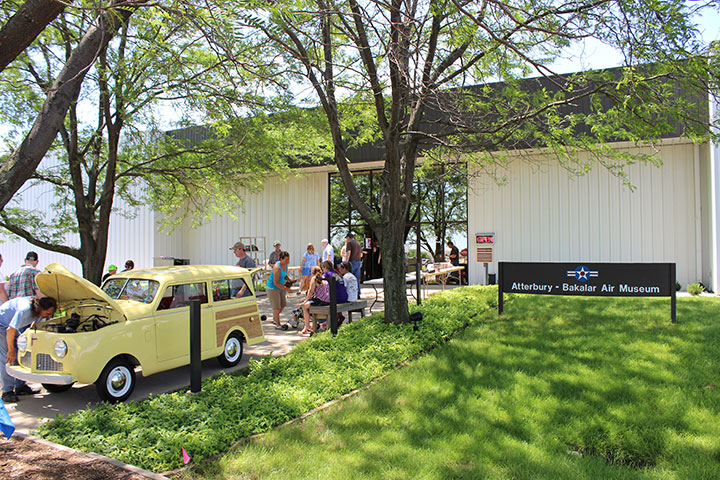
I have visited the Museum several times since it has opened.
During my trip to the 2014 the airport Open House in June of 2014 gave
me an opportunity to see the new addition and added displays. The
original structure is the portion with the brown trim along the
roofline.
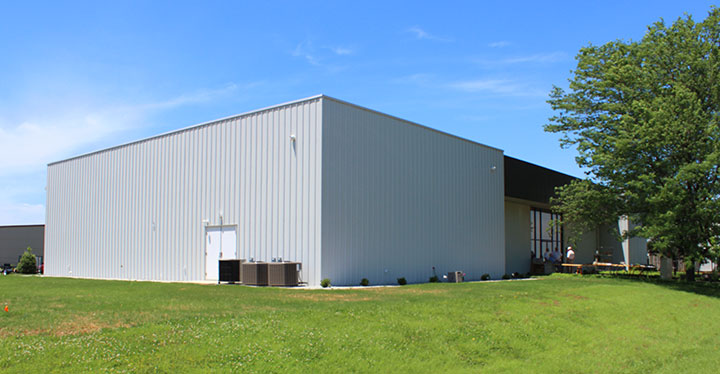
The new addition is this portion which is on the south side of the
building.
Cummins Model A Diesel Engine: This
section added 8-16-2018.
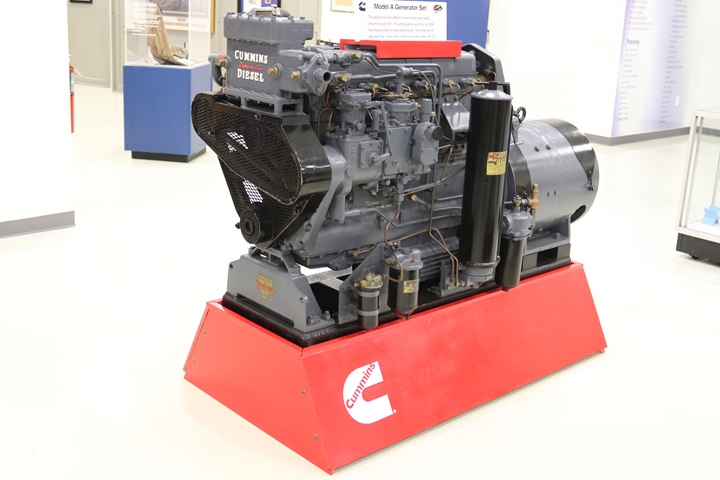
This engine is the only known World War Two
Cummins Diesel on display in a museum. The engine is now on permanent loan to the
museum from Cummins after sitting in a storage area at the company for
many years. Author's photo added 8-16-2018.
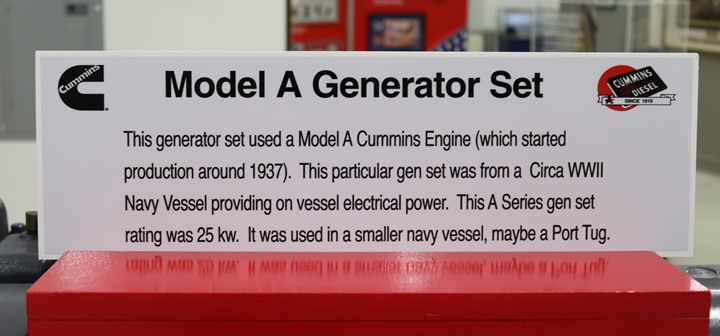
The information label is not specific on the
actual application of the generator set. The museum is correct
about its use in small vessels, as larger ships primarily used engines
from both the Detroit Diesel and Cleveland Diesel Divisions of GM during
WWII. Author's photo added 8-16-2018.
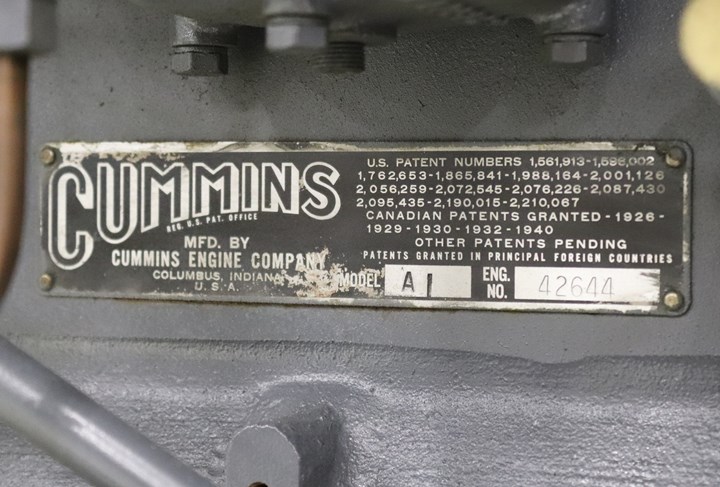
The A series was started in 1937. By
1944 42,644 units had been produced. Author's photo added
8-16-2018.
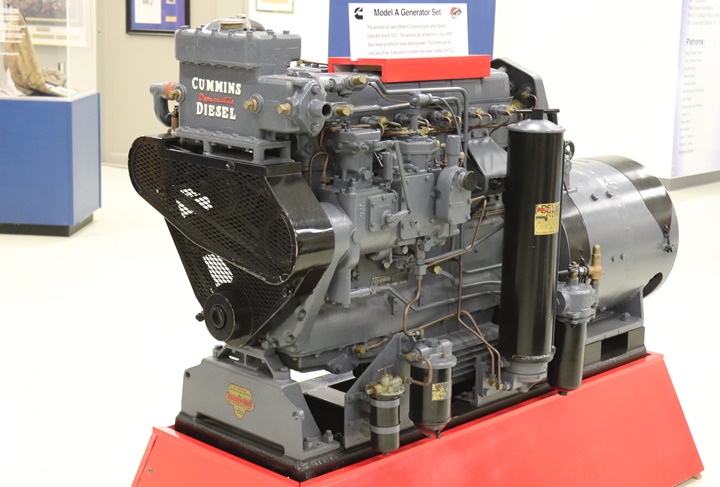
The General Motors Harrison Radiator built heat exchanger has "Cummins
Dependable Diesel" cast into the front of it. The heat
exchanger was built on 4-26-1944; indicating this engine was built
sometime after that. Author's photo added 8-16-2018.
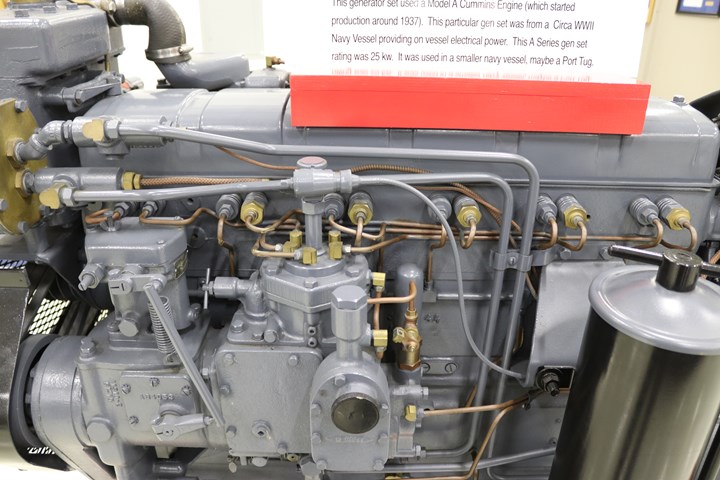
The Cummins A series was a six cylinder
engine with two injectors per cylinder. Author's photo added
8-16-2018.
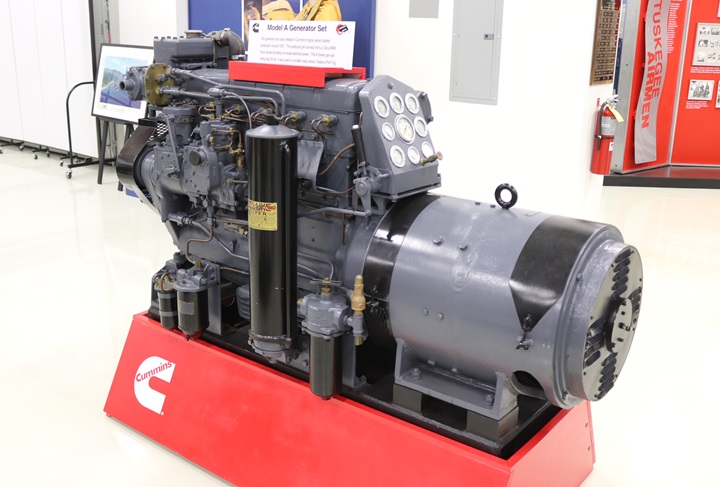
Author's photo added 8-16-2018.
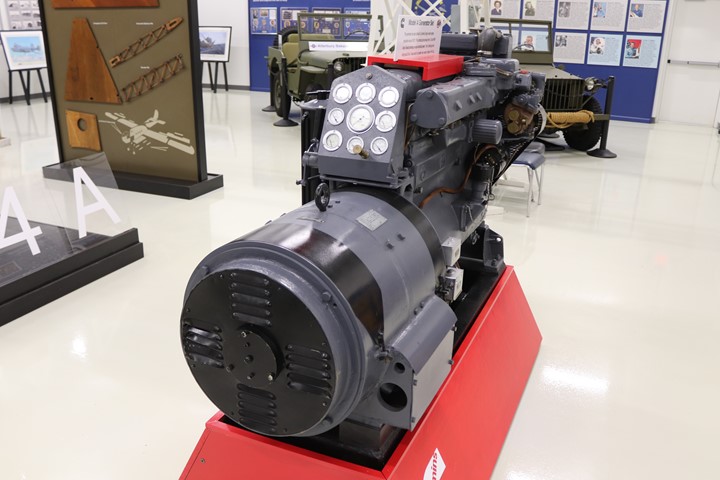
Author's photo added 8-16-2018.
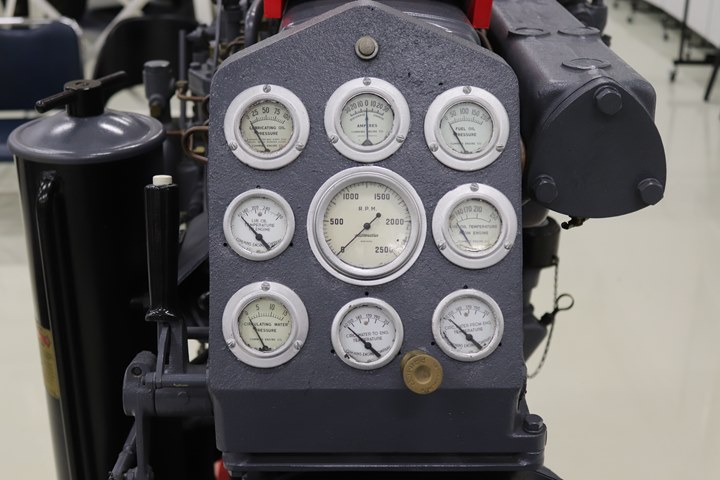
Author's photo added 8-16-2018.
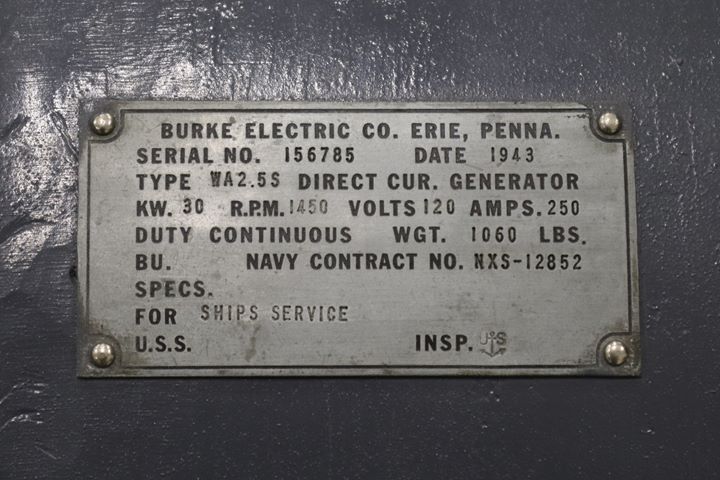
Author's photo added 8-16-2018.
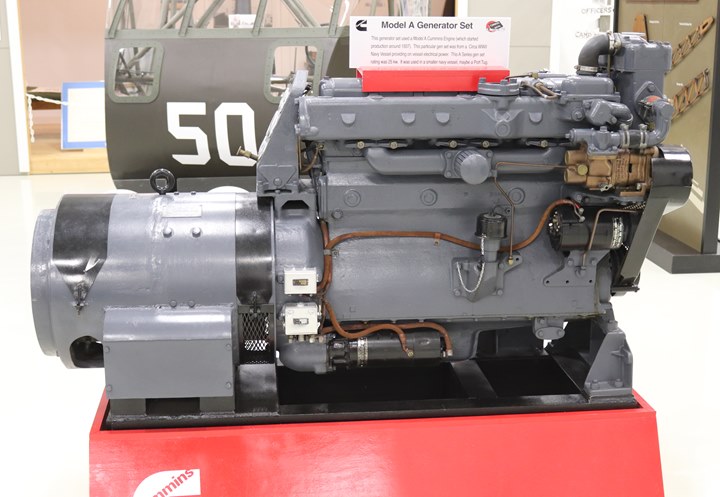
Author's photo added 8-16-2018.
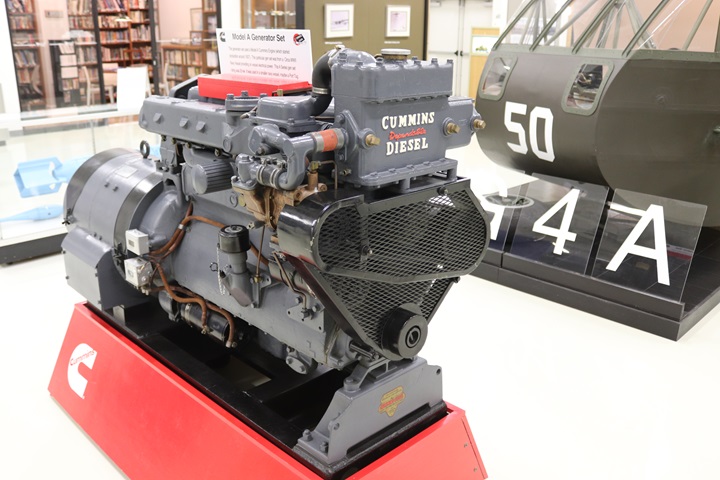
Author's photo added 8-16-2018.
American Bantam Jeep: This
section added 8-16-2018.
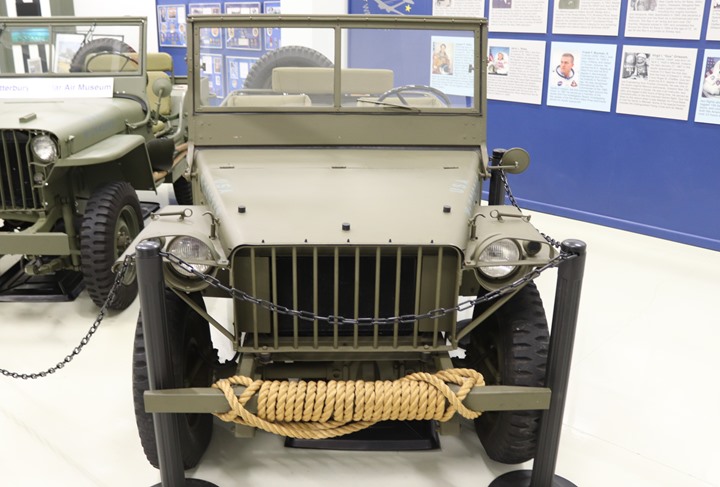
Author's photo added 8-16-2018.
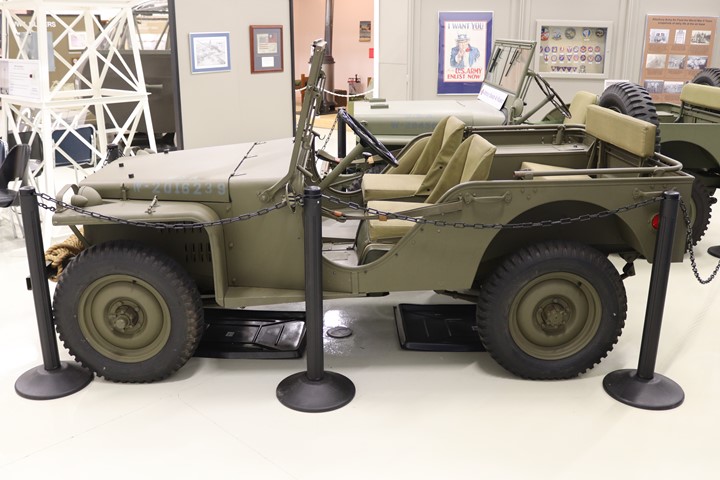
Author's photo added 8-16-2018.
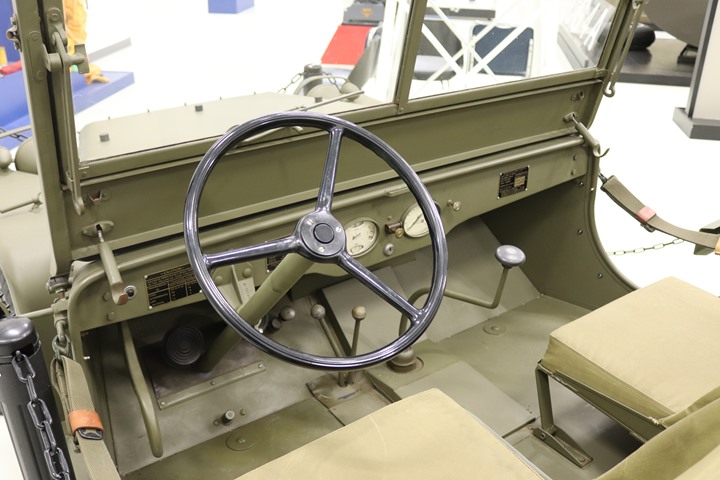
Author's photo added 8-16-2018.
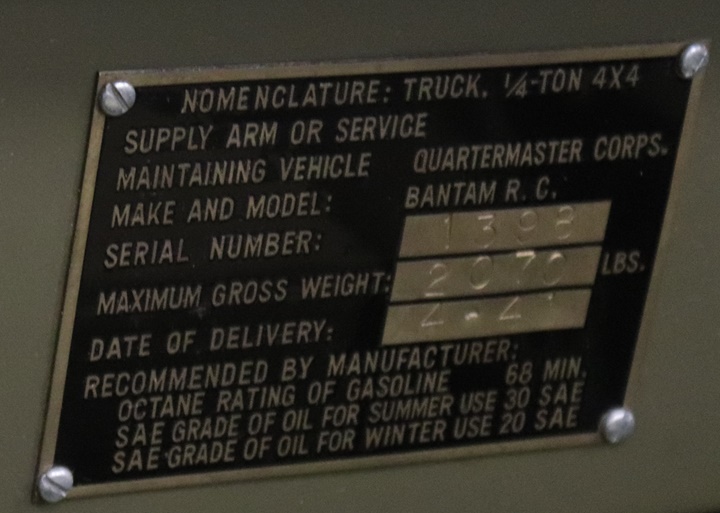
This vehicle is serial number 1398 out of
2642, and was delivered to the Quartermaster Corps in April 1941.
Author's photo added 8-16-2018.
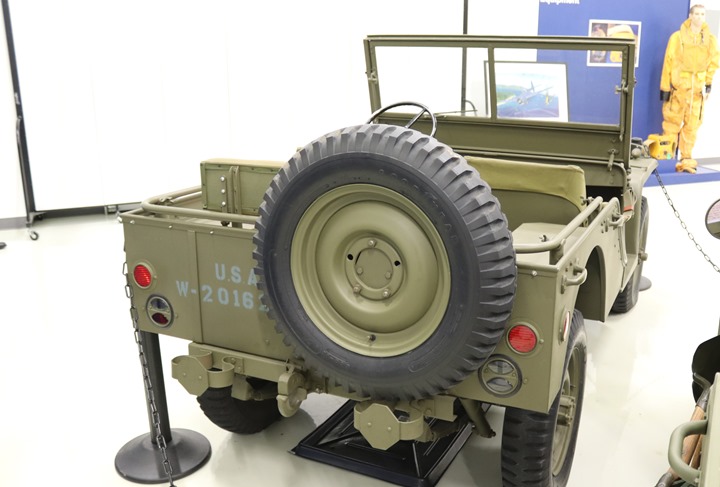
Author's photo added 8-16-2018.
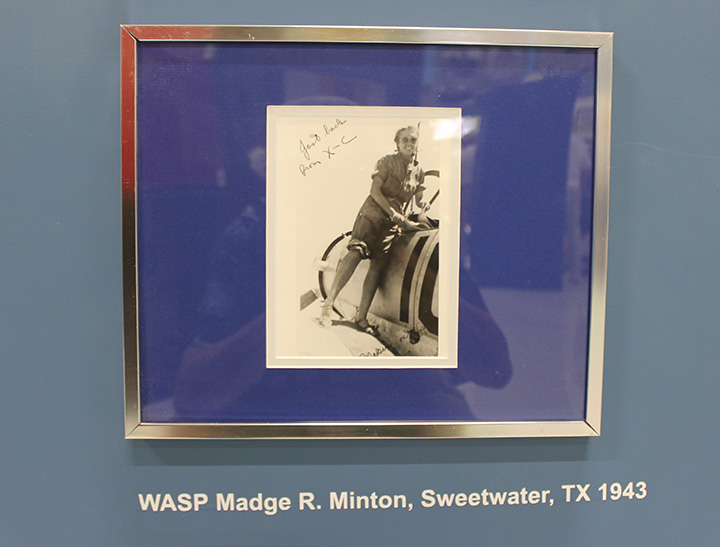
I knew Madge Minton and was immediately attracted to these photos of her
from WWII.
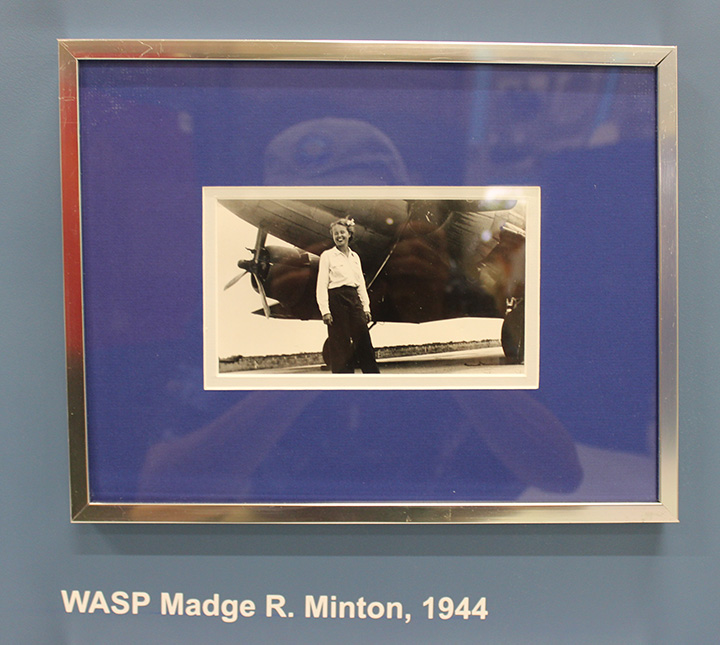
Madge in front of a C-47.
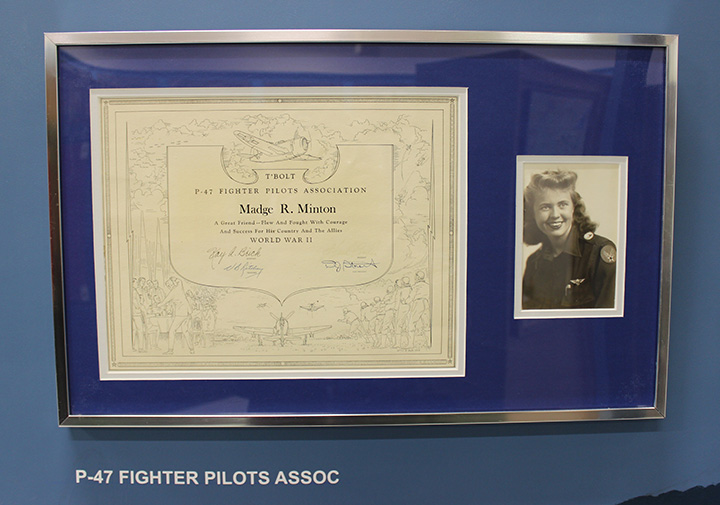
She also was able to fly and ferry P-47s. After the war she was a
regional vice-president of the P-47 Pilot's Association and was also a
member of the P-51 Mustang Pilot's Association. Madge passed away
in 2004 at age 84.
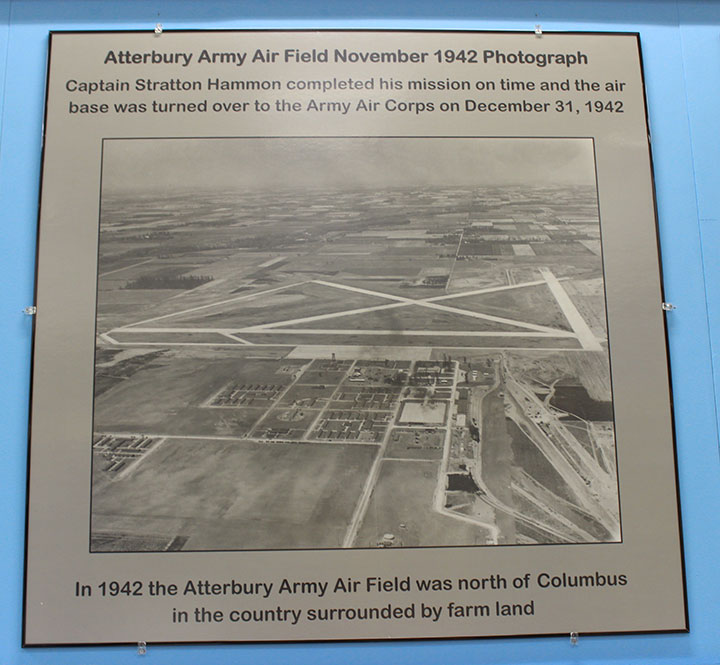
The next series of photos, which are hung high on the wall in the
original structure, give a visual history of the base. This photo
is looking north.
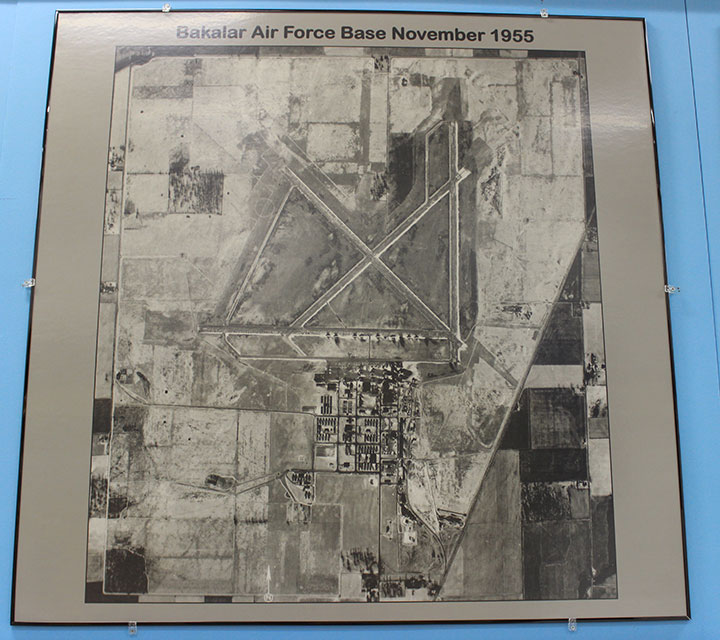
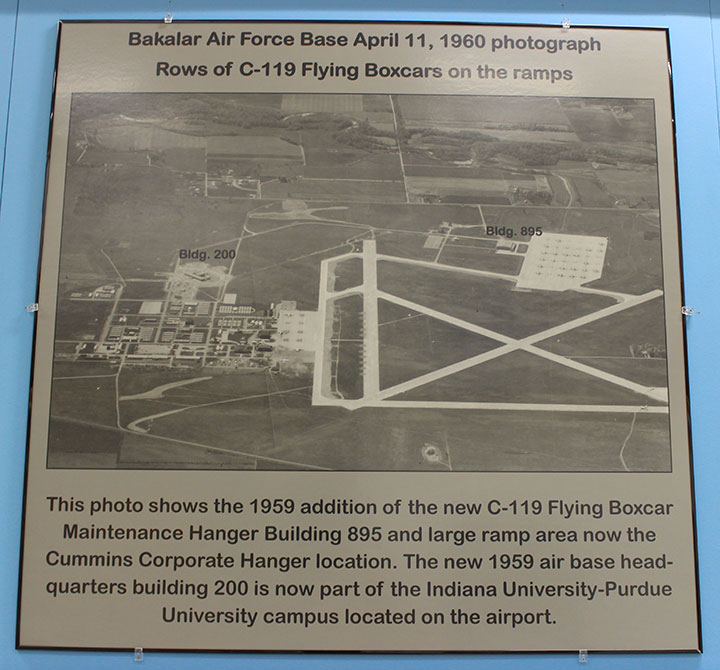
Looking west in this photo shows there was a large concentration of
C-119s located at Bakalar.
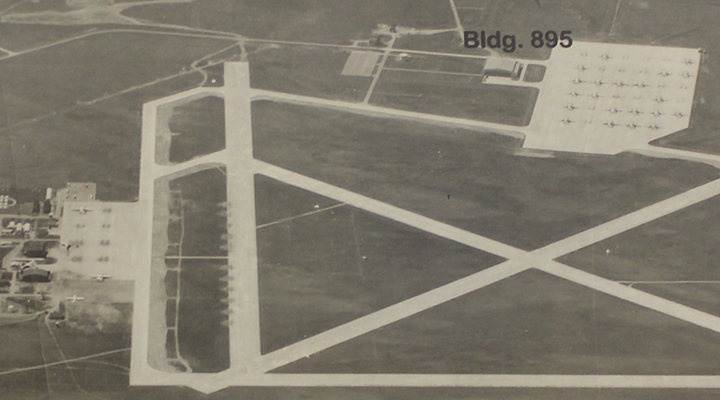
There are three C-119s and a C-47 on the
south ramp (left) and 21 C-119s on the west ramp by Bldg. 895. The
WWII all wooden hangar at the bottom of the south ramp still exists.
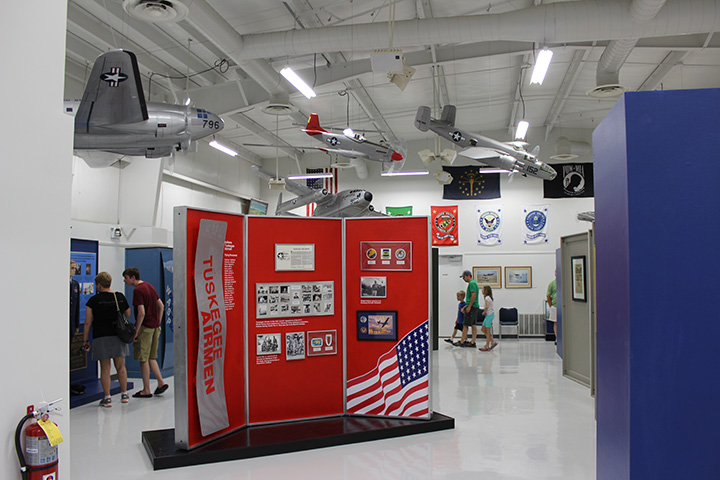
The museum has many aircraft models hanging overhead. The displays
are first rate and the lighting in the facility is great. This is
part of the original display area.
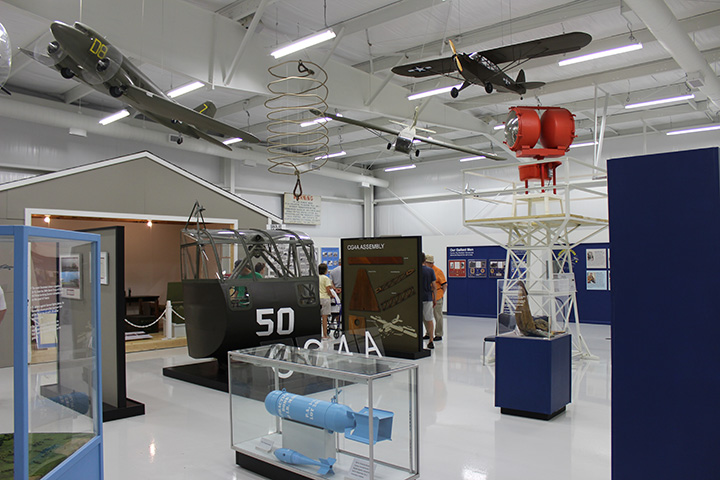
This photo looks into the new addition. Note the models overhead
and that the displays are well spaced and not cluttered.
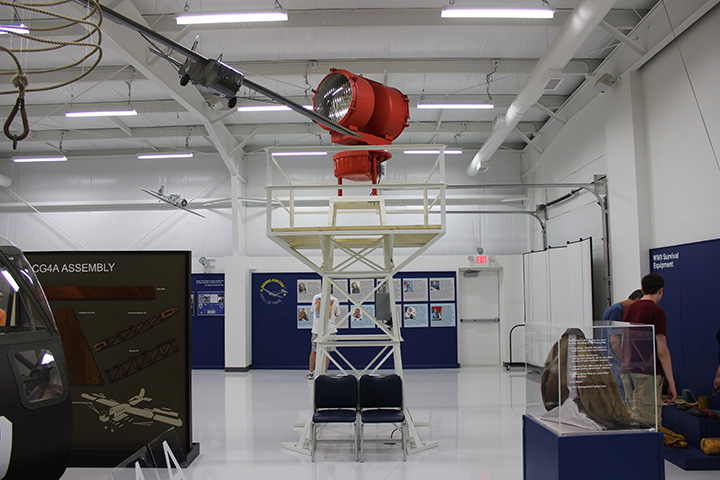
No doubt there will be more displays added
as time progresses, as there is still empty space left in the addition.
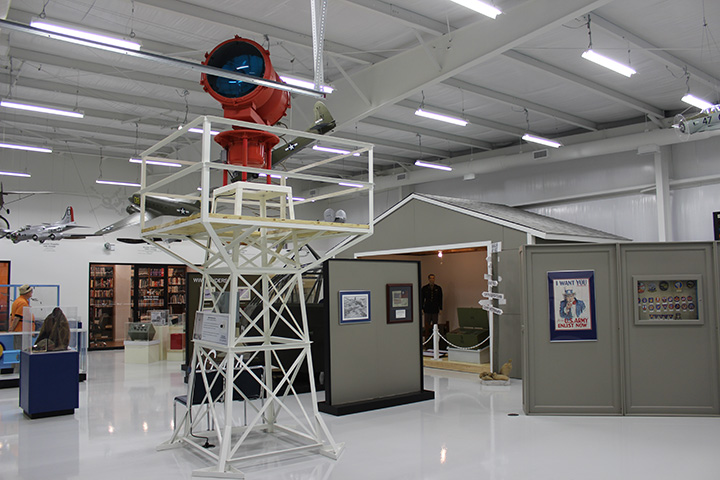
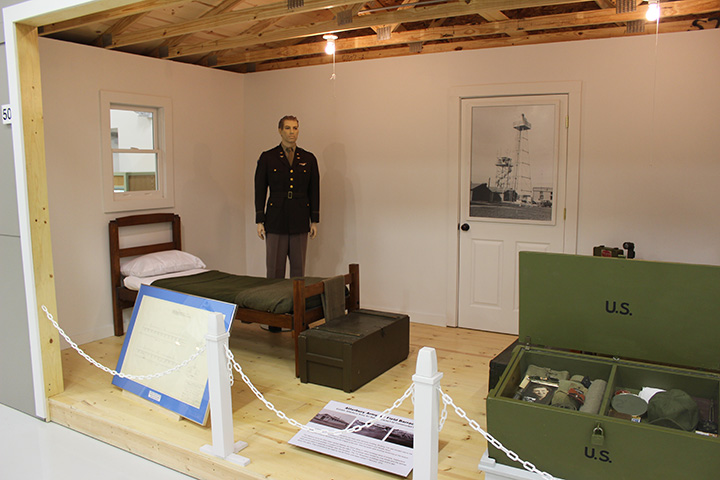
This diorama depicts the WWII the barracks at Atterbury Air Field.
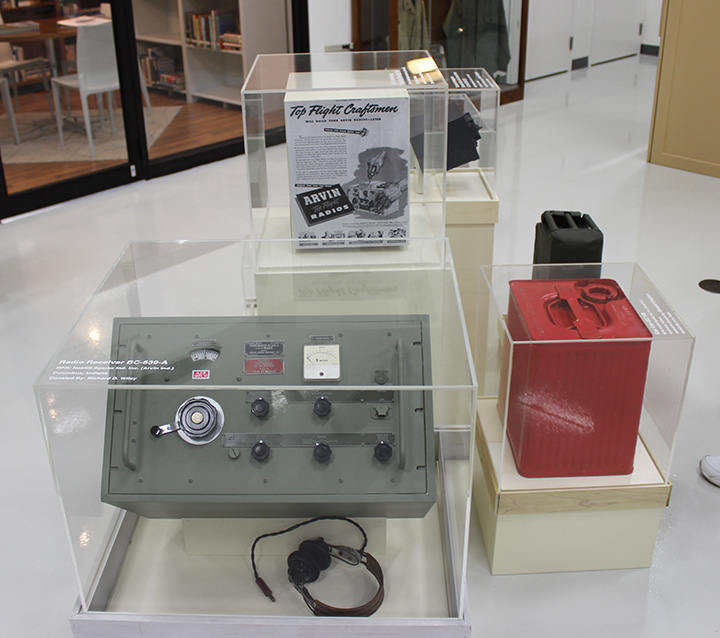
Also on display are items manufactured in Columbus for the war effort in
WWII.
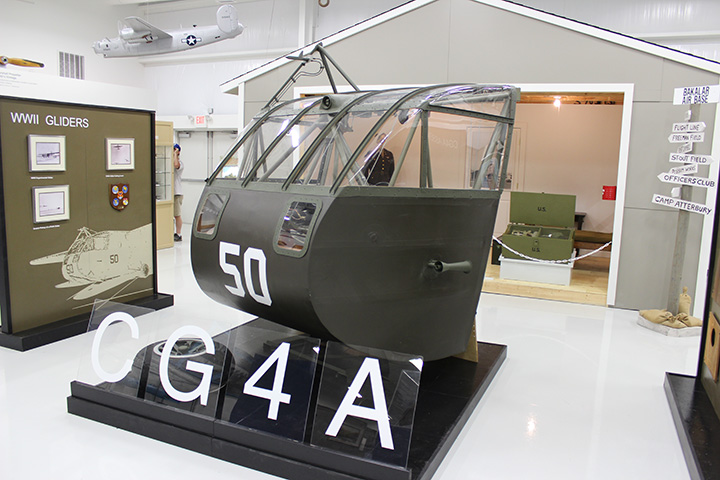
The museum has done an excellent job of restoring the nose section of a
CG-4A WWII glider.
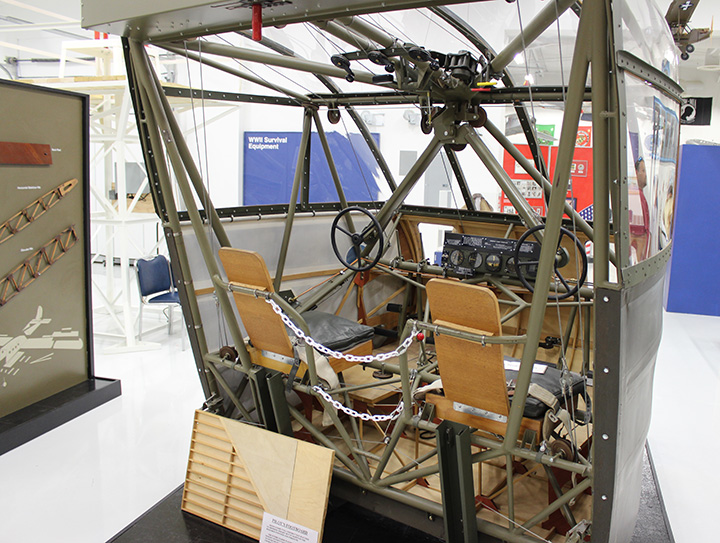
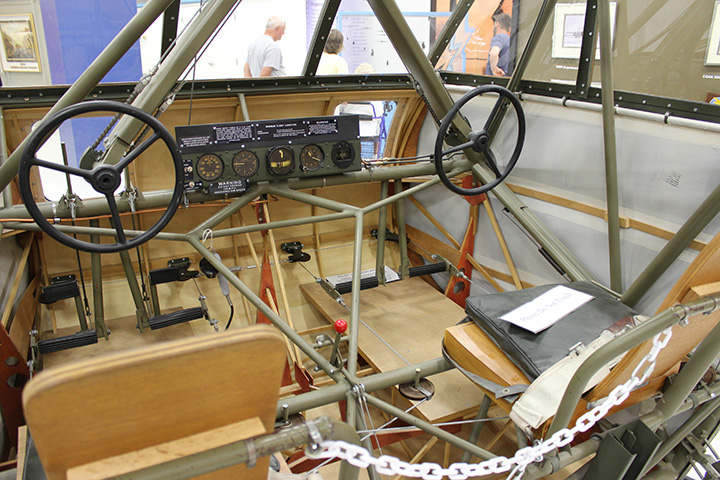
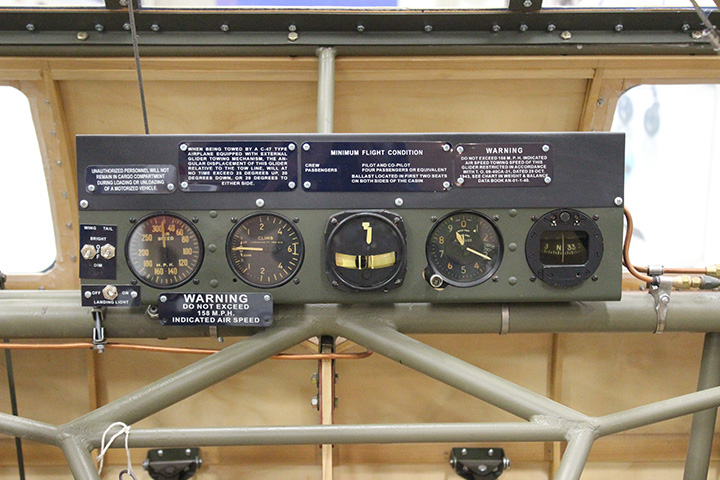
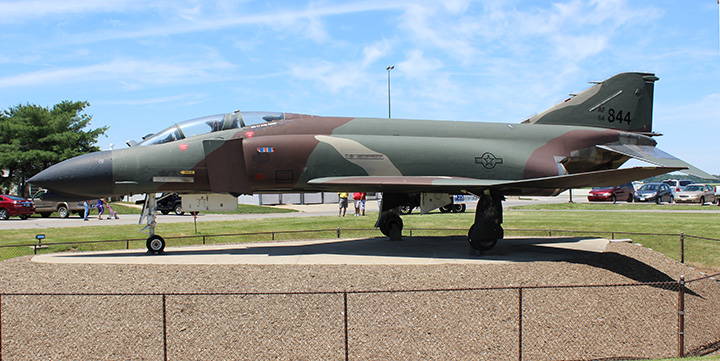
Sitting out in front of the museum is this F-4C that served with the
181st Tactical Fighter Group, Indiana Air National Guard, at Terre
Haute, IN.
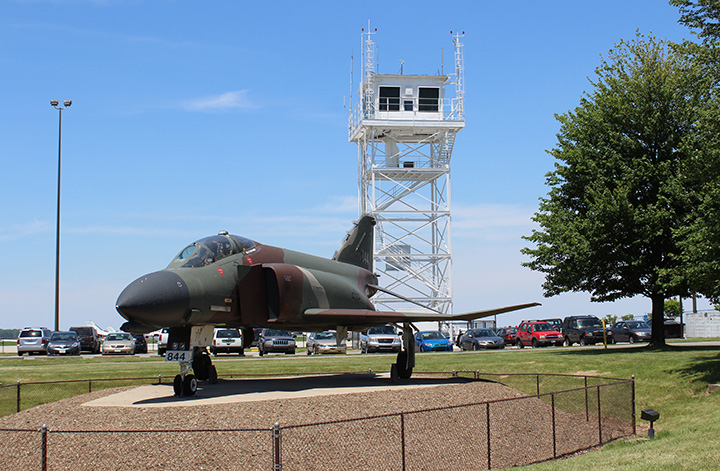
The Atterbury-Bakalar Air Museum is a
destination for anyone interested in WWII history and how this military
base contributed to the winning of that war, and and then served its
country afterwards until its closure.
|




































